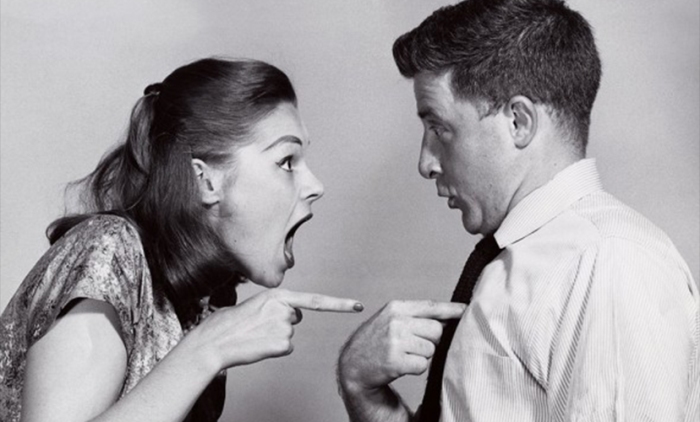
I’ve come to the conclusion: I can’t deal with people.
Although by my mid-thirties I know life is a constant learning experience and that we can traverse the entire continuum of allegiances and viewpoints, I have gleaned from my social experiences thus far that I’m just not good at interpersonal skills.
First off, I’m poor at asserting myself. When faced with a scenario where a simple expression of my needs would suffice, I am often drowned out by the myriad connotations of the situation: who is involved, how much I love/fear/loathe/need them, what words or actions spurred the need to assert myself—and how it affects me emotionally.
Beyond that, I seem to lack the same interests, motives or needs that many people exhibit in socializing: I don’t crave status, dominance, or social gain through who I associate with.
As any experienced person knows, there are tacit “games” that people play with one another—through physical action, comments, rejection—to assert their needs and agenda in regards to others.
I’m not interested.
I’m not interested.
I can’t deal with people judging others based on what they look like, who they hang out with, what job they have.
I can’t deal with people who aggressively label me—thinking they “know me” but they really don’t, and when I inevitably prove them wrong they get mad at me, of course, because they’re upset that the world doesn’t fit their perception of it.
I can’t deal with people who put others down in order to build themselves up. I can’t deal with people who gleefully abuse others for this purpose—who have no qualms making an innocent human being miserable.
I can’t deal with people using others for personal gain, including those they had considered their friends and closest colleagues.
I don’t want to trade barbs with people, because on an instinctual level I don’t want to sink to that level. It disgusts and unnerves me to see myself behave that way. For many people, if I can’t do that—then I am simply a target for their deplorable behavior, and therefore I must avoid them for my own safety and self-respect.
Consequently, even if I possessed the fortitude to assert myself more effectively—my general distaste in our social mores and behaviors could possibly thwart me from ever engaging. I don’t want to correct people’s behavior towards me—not just because I’m incompetent, but because it offends and repulses me that I have to display certain traits to attain it.
It sounds like a cop-out, and in a way—it is. After all, life is all about doing things we don’t want to but are essential as a means to a healthy life that truly benefits us. Each day, we awake, wash and dress ourselves—that in of itself is a requisite for a healthy existence. The vast majority of us must work at an occupation to earn resources that will acquire us more resources.
Interpersonal skills are not as tangible as our bodies, food, water, and a roof over our heads—but they are just as vital for the social animal that we are.
This is where I clash. My principles seem to be at odds with the rudimentary mechanics of socializing.
It’s a shame, because what I lack in grit I make up for in other virtues: as a friend, I’ve been told that I’m fun, open-minded, tolerant, and unconventional. I challenge the norms of society for the greater good of seeing the world anew. I am loyal, kind, generous, and gracious. I am accepting and thoughtful most of the time. I am engaging, but also capable of great independence. I have clearly defined interests and opinions that define me and can serve others.
Look, I’m also not perfect either and can even be guilty of unsavory behavior towards others, but for the most part I believe in a higher state of coexistence. And this is another hindrance to my interactions with others.
At the risk of sounding hopelessly naïve or oblivious, I believe in a world where we tolerate our differences instead of persecuting each other for them. I believe in treating each other with decency and minimal respect, even if we differ in lifestyle, views or appearances. I believe in equality—that we are all inherently valuable therefore the need for stringent hierarchy or status is irrelevant. I believe that as long as a person is not harming anyone, they should be accepted as they are—not persecuted because of someone else’s expectations or ideology. I know this isn’t plausible in our world, but that is my core approach to life, and informs how I view and interact with others.
This is the reason why I feel separate from most people, and different.
I’ve realized this is the reason why I am often confounded when people invariably end up being… human.
It’s all too common for people, including those we’d entrusted ourselves, to lash out at one another—because of differing temperaments, beliefs, expectations, ideology, and needs.
At this age, I’ve experienced the disappointment of so-called “friends” who display less than stellar traits towards me, and handle me in a way that directly opposes basic decency and humanity.
I’ve only been able to count on a small handful of friends who haven’t eventually turned on me yet—and of that minority, many of them are simply not visible enough in my daily life to risk offending me.
This, I feel must be the resolution to my anomalous condition: to seek out and zero in on the rare peoples who will not see me as a target for their foibles and dire needs.
When I find such a commodity, I must treasure them and keep them in my life—because they will be my principal social outlet, because it appears that I am not capable of much more than that.
Will I ever find such rare exceptions? That’s the question.
